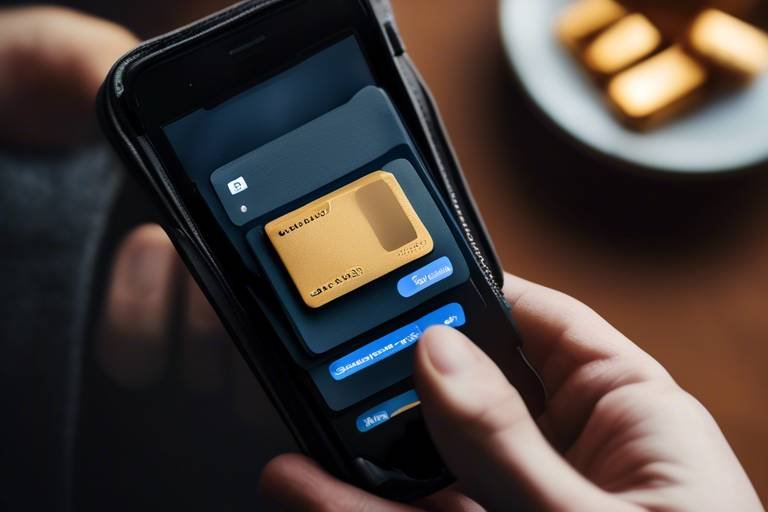The Pros and Cons of Using Exchange Wallets for Trading
When diving into the world of cryptocurrency trading, one of the first decisions you'll face is whether to use an exchange wallet. These wallets are designed for convenience and accessibility, making them a popular choice among traders. However, like any tool, they come with their own set of advantages and disadvantages. In this article, we'll explore the pros and cons of utilizing exchange wallets, offering insights into their security, accessibility, and how they can impact your trading strategies.
Understanding the potential security vulnerabilities associated with exchange wallets is crucial for traders. While these wallets provide a user-friendly experience, they are not without risks. The most significant threat comes from hacking incidents, where attackers target exchanges to steal funds. In 2021 alone, over $2.8 billion was stolen from exchanges, highlighting the importance of security. Moreover, if a trader loses access to their account due to a forgotten password or two-factor authentication issues, they may find it challenging to recover their assets. It's essential to weigh these risks against the convenience that exchange wallets provide.
One of the standout features of exchange wallets is their convenience. They are designed to be user-friendly, allowing traders to access their digital assets quickly and efficiently. Imagine being able to execute trades with just a few clicks—this is the reality for many using exchange wallets. The seamless experience enhances trading efficiency, making it easier for both novice and experienced traders to manage their portfolios. Furthermore, the integration of various trading tools directly within the wallet simplifies the process, allowing users to analyze market trends without switching platforms.
One of the main advantages of exchange wallets is the ability to execute instant transactions. This feature can significantly impact trading strategies, especially in a market known for its volatility. When a trader spots an opportunity, being able to act immediately can mean the difference between profit and loss. For instance, if Bitcoin's price suddenly spikes, a trader using an exchange wallet can quickly buy or sell without the delays associated with transferring funds between different wallets. This immediacy can create a competitive edge in the fast-paced world of cryptocurrency trading.
Many exchanges offer competitive transaction fees for wallet users, making trading more affordable. While fees can vary significantly between platforms, traders often find that using an exchange wallet can help them save on costs. For example, while some wallets charge upwards of 2% per transaction, many exchanges provide rates as low as 0.1% to 0.5%. This difference can add up quickly, especially for high-volume traders. It’s worth considering how transaction fees will affect your overall profitability and decision-making.
Exchange wallets often come with built-in trading tools that can simplify the trading process for users. Features such as real-time market data, charting tools, and alerts can enhance a trader's ability to make informed decisions. For example, a trader can set price alerts for specific cryptocurrencies and receive notifications directly through their wallet. This integration allows for a more streamlined trading experience, enabling users to stay updated without needing to toggle between multiple applications.
Using exchange wallets means relying on third-party security measures. While many exchanges implement robust security protocols, the reality is that no system is entirely foolproof. Traders must consider the implications of this dependency, as it can impact the safety of their assets. For instance, if an exchange suffers a security breach, users may find their funds at risk. It’s crucial to choose reputable exchanges with strong security practices and to stay informed about any potential vulnerabilities that could affect your assets.
Exchange wallets are designed for ease of use, which is a significant advantage for both novice and experienced traders. The user experience is often intuitive, allowing individuals to navigate the platform with minimal effort. This accessibility can be particularly beneficial for those new to cryptocurrency, as it reduces the learning curve associated with managing digital assets. With a straightforward interface and helpful resources, traders can quickly become comfortable with their wallets and start executing trades.
Many exchange wallets offer cross-platform compatibility, allowing users to trade seamlessly across different devices. Whether you prefer to use your smartphone, tablet, or desktop, the ability to access your wallet from anywhere is a game-changer. This flexibility means you can monitor your investments and execute trades on the go, which is essential in a market that operates 24/7. Imagine being able to check your portfolio during your morning commute or while waiting in line at the grocery store—this level of accessibility can significantly enhance your trading experience.
Effective customer support is vital for traders using exchange wallets. Issues can arise at any time, from login problems to transaction errors, and having reliable support can make all the difference. Many exchanges offer multiple channels for customer assistance, including live chat, email, and phone support. This availability ensures that traders can resolve issues quickly and get back to focusing on their trading strategies. A responsive support team can provide peace of mind, knowing that help is just a click away.
- What is an exchange wallet? An exchange wallet is a digital wallet offered by a cryptocurrency exchange that allows users to store, send, and receive cryptocurrencies.
- Are exchange wallets safe? While they offer convenience, exchange wallets can be vulnerable to hacking. It's essential to choose reputable exchanges and implement additional security measures.
- Can I use an exchange wallet for long-term storage? It is generally recommended to use hardware wallets for long-term storage due to the security risks associated with exchange wallets.
- What should I consider when choosing an exchange wallet? Look for factors such as security features, transaction fees, user experience, and customer support availability.

Security Risks of Exchange Wallets
When it comes to trading cryptocurrencies, security is a top concern for everyone involved. Exchange wallets, while incredibly convenient, come with their own set of security risks that traders need to be aware of. Understanding these vulnerabilities is crucial for safeguarding your digital assets. One of the most significant threats is the potential for hacking. Exchanges are prime targets for cybercriminals due to the large amounts of cryptocurrency they hold. When a hacker breaches an exchange, they can gain access to thousands of user accounts, leading to substantial financial losses.
Another risk associated with exchange wallets is the lack of control over your private keys. Unlike personal wallets, where you hold your keys, exchange wallets store them on your behalf. This means that you are placing your trust in the exchange's security measures. If the exchange experiences a security breach, your assets could be at risk. It's akin to keeping cash in a bank; while banks have security protocols, they are not impervious to theft or fraud.
Moreover, the potential for insider threats cannot be overlooked. Employees at exchanges may have access to sensitive information and could exploit it for personal gain. This risk underscores the importance of choosing reputable exchanges that have a solid track record of security. Additionally, regulatory issues can also pose risks. If an exchange is not compliant with local regulations, it may face legal challenges that could affect its operations and, consequently, your assets.
To sum it up, here are some common security risks associated with exchange wallets:
- Hacking: Cybercriminals targeting exchanges to steal funds.
- Loss of Private Keys: Users do not control their private keys, risking asset loss if the exchange is compromised.
- Insider Threats: Employees misusing their access to compromise user accounts.
- Regulatory Issues: Non-compliance can lead to operational disruptions.
In conclusion, while exchange wallets provide ease of access and user-friendly interfaces, they also come with significant security risks. It's essential for traders to weigh these risks against the convenience that exchange wallets offer. By being aware of these vulnerabilities, you can take proactive steps to protect your investments, such as enabling two-factor authentication and regularly monitoring your accounts for suspicious activity.
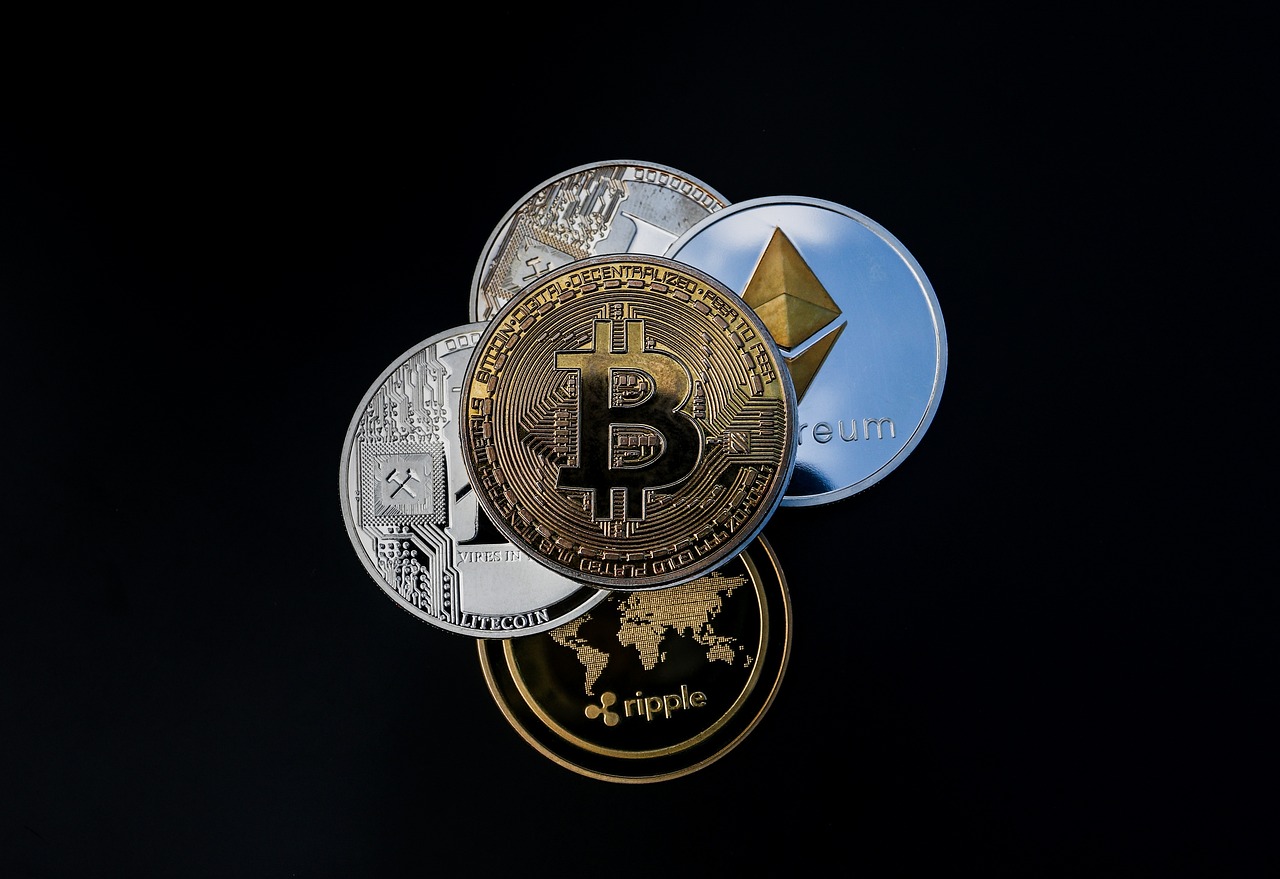
Convenience of Exchange Wallets
When it comes to trading cryptocurrencies, convenience is key. Exchange wallets are designed with user-friendliness in mind, making them an excellent choice for both beginners and seasoned traders alike. Imagine trying to navigate through a complex maze of options and features; it can be overwhelming! Fortunately, exchange wallets simplify this process, allowing users to focus more on trading and less on the technicalities. With just a few clicks, you can access your funds, execute trades, and monitor market trends—all from one centralized platform.
One of the standout features of exchange wallets is their easy access to funds. Unlike traditional wallets that require a bit of technical know-how to set up and manage, exchange wallets streamline the entire process. All you need to do is create an account, deposit your cryptocurrency, and you’re ready to go! This accessibility is particularly beneficial for those who are new to the crypto scene and may feel intimidated by the complexities of digital wallets.
Moreover, the convenience of exchange wallets extends to their ability to facilitate instant transactions. Picture this: you spot a great trading opportunity, and you need to act fast. With exchange wallets, you can execute trades in real-time, ensuring that you don’t miss out on potential profits. This immediacy can be a game-changer in the fast-paced world of cryptocurrency trading, where every second counts.
Another advantage is the low transaction fees that many exchanges offer. Unlike some wallets that charge hefty fees for transactions, exchange wallets often provide competitive rates, allowing traders to maximize their profits. Let’s break down how these fees can impact your trading decisions:
| Transaction Type | Typical Fee | Impact on Profitability |
|---|---|---|
| Deposit | 0.1% - 0.5% | Low impact on overall profits |
| Withdrawal | 0.2% - 1% | Can affect final profit margins |
| Trade | 0.1% - 0.25% | Minimal impact, encourages frequent trading |
As you can see, keeping an eye on transaction fees is essential for maintaining profitability in your trading strategy. With lower fees, you can trade more frequently without worrying about cutting into your earnings.
In addition to these benefits, exchange wallets often come equipped with integrated trading features. This means you can analyze market trends, set alerts, and even automate trading strategies—all within the same platform. It’s like having a Swiss Army knife for trading at your fingertips! These built-in tools not only simplify the trading process but also enhance your overall experience, making it easier to make informed decisions quickly.
However, while the convenience of exchange wallets is undeniable, it’s essential to remember that this ease of use comes with some trade-offs. For instance, using an exchange wallet means relying on third-party security measures, which can raise concerns about the safety of your assets. But we’ll dive deeper into that aspect in the next section.
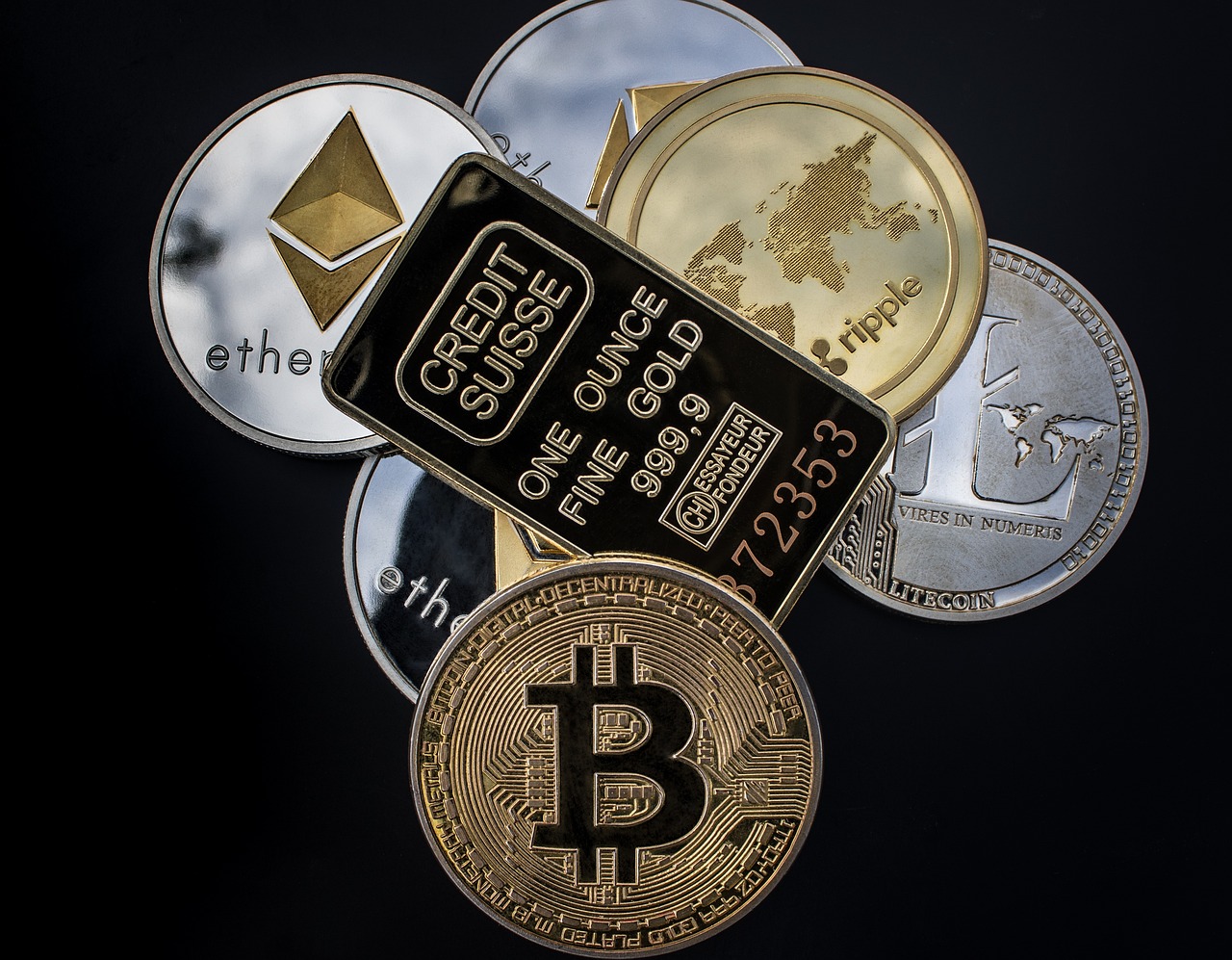
Instant Transactions
When it comes to cryptocurrency trading, timing is everything. Imagine standing at a busy intersection, waiting for the light to change, while the cars zoom past. That’s what trading can feel like without the advantage of . Exchange wallets provide a remarkable edge by allowing you to execute trades almost immediately. This feature is particularly beneficial in the volatile world of cryptocurrencies, where prices can fluctuate wildly within seconds. With the ability to buy or sell at the right moment, traders can seize opportunities that might otherwise slip through their fingers.
Instant transactions mean that you can enter or exit positions without the dreaded delays that can occur with traditional wallets. This is especially crucial during market surges or dips, where every second counts. For instance, if you hear news that could affect the market drastically, having the ability to act quickly can make a significant difference in your overall trading success. Think of it as having a superpower in the trading arena—being able to react faster than your competitors can lead to greater profits.
Moreover, the seamless nature of instant transactions enhances the overall trading experience. Users can enjoy a fluid and dynamic trading environment without the constant worry of transaction bottlenecks. This not only boosts confidence but also encourages more frequent trading, which can be a game-changer for those looking to maximize their returns. To illustrate the impact of instant transactions, consider the following table that compares traditional wallet transactions to those executed through exchange wallets:
| Feature | Traditional Wallets | Exchange Wallets |
|---|---|---|
| Transaction Speed | Minutes to Hours | Instant |
| Market Reaction Time | Delayed | Immediate |
| User Experience | Complex | User-Friendly |
However, while the advantages are clear, it’s essential to remember that instant transactions also come with their own set of challenges. For instance, the speed of transactions can lead to impulsive trading decisions. Without taking the time to analyze the market, traders might jump into trades that aren't well thought out, which can lead to losses. Thus, while the convenience of instant transactions is incredibly appealing, it’s vital for traders to maintain discipline and strategy in their trading practices.
In conclusion, instant transactions offered by exchange wallets are a significant boon for traders. They provide the agility needed to navigate the fast-paced world of cryptocurrency, allowing users to react promptly to market changes. By combining speed with a solid trading strategy, traders can leverage this feature to enhance their overall trading performance. So, are you ready to embrace the speed of instant transactions and gain an edge in your trading journey?
- What are exchange wallets? Exchange wallets are digital wallets provided by cryptocurrency exchanges that allow users to store, send, and receive cryptocurrencies.
- Are exchange wallets safe? While exchange wallets offer convenience, they are generally considered less secure than hardware wallets due to their reliance on third-party security measures.
- Can I use an exchange wallet for long-term storage? It is not recommended to use exchange wallets for long-term storage of cryptocurrencies due to potential security risks. Instead, consider hardware wallets for that purpose.
- How do instant transactions work? Instant transactions occur when the exchange processes your trade immediately, allowing you to buy or sell cryptocurrencies without delays.

Low Transaction Fees
When it comes to trading cryptocurrencies, one of the most important factors that traders consider is the cost associated with each transaction. can significantly influence your overall trading profitability, and this is where exchange wallets shine. Many exchanges offer competitive fee structures that can be a game changer for both novice and seasoned traders alike. Imagine being able to execute trades without the burden of hefty fees eating into your profits—sounds appealing, right?
Typically, transaction fees can vary widely between different exchanges, and understanding these costs can help you make informed decisions. For instance, some exchanges might charge a flat fee per transaction, while others may have a percentage-based model. Here's a quick overview of how transaction fees can differ across popular exchanges:
| Exchange Name | Transaction Fee Structure |
|---|---|
| Exchange A | 0.1% per transaction |
| Exchange B | $0.50 flat fee |
| Exchange C | 0.2% for trades under $1000 |
As you can see from the table, transaction fees can vary significantly, and choosing an exchange with lower fees can lead to substantial savings, especially for high-frequency traders. These savings can add up over time, allowing you to reinvest more into your trading strategy or simply keep more of your hard-earned profits.
Moreover, many exchanges offer promotional periods with reduced fees or even zero fees for specific trading pairs. This can provide an excellent opportunity for traders to capitalize on market movements without the worry of incurring high costs. However, it's always wise to read the fine print, as these promotions may come with conditions that could affect your trading plan.
In addition to direct transaction fees, it's also essential to consider other hidden costs that might affect your trading experience. For example, withdrawal fees can sometimes be overlooked. These fees are charged when you transfer your cryptocurrencies from the exchange wallet to a personal wallet. Therefore, while an exchange may advertise low transaction fees, high withdrawal fees could negate those savings. Always ensure you have a comprehensive understanding of the fee structure before committing to a platform.
In summary, the offered by exchange wallets can significantly enhance your trading experience. By minimizing costs, you can maximize your potential profits, making it a crucial factor to consider when selecting an exchange. Just remember to keep an eye on the total fee landscape, including withdrawal fees, to ensure you’re making the most cost-effective choices in your trading journey.
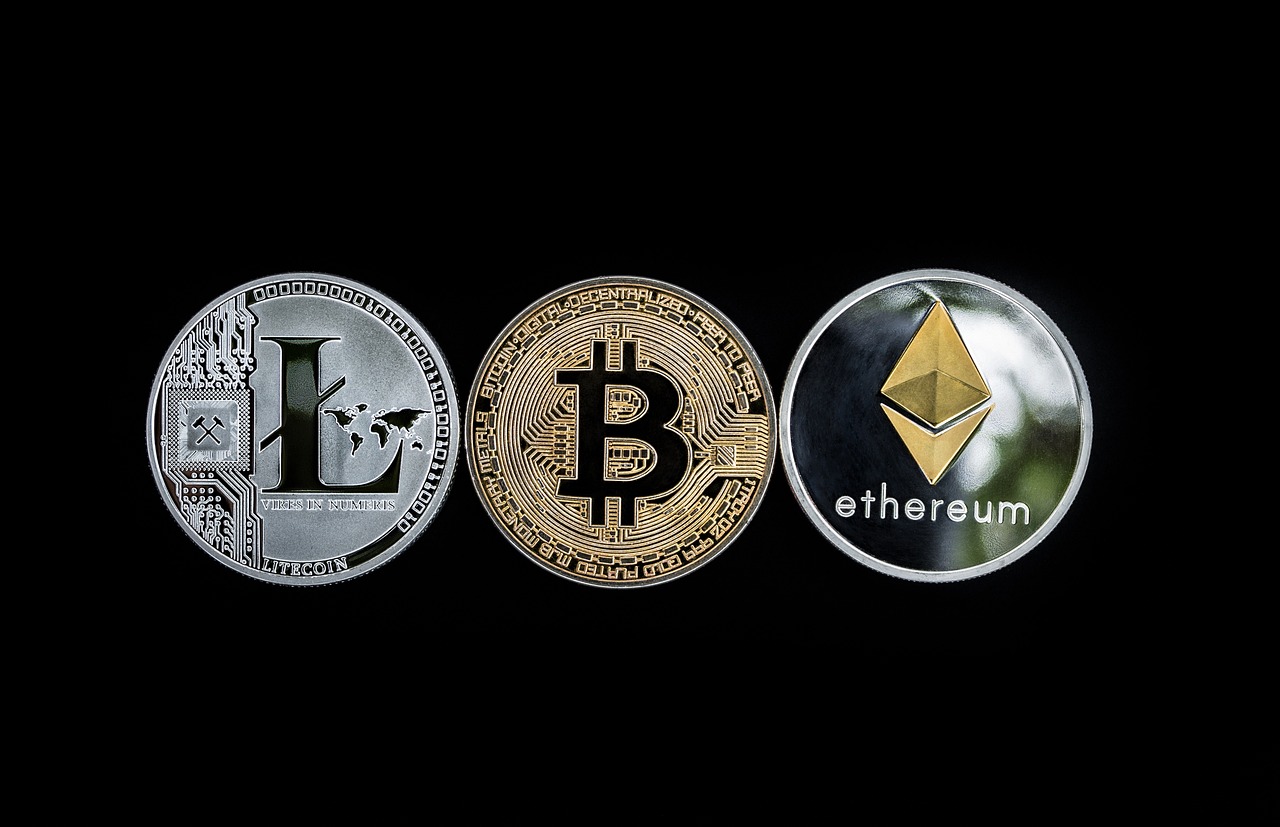
Integrated Trading Features
When it comes to trading cryptocurrencies, having the right tools at your fingertips can make all the difference. This is where of exchange wallets shine. These wallets are not just digital vaults for your assets; they are multifunctional platforms equipped with various tools designed to streamline your trading experience. Imagine walking into a grocery store that not only sells food but also has a full kitchen where you can cook, taste, and even learn new recipes all in one place. That’s the convenience an integrated trading feature offers!
One of the standout benefits of using an exchange wallet with integrated trading features is the ability to execute trades directly from the wallet interface. This means you don’t have to jump between different platforms to buy, sell, or exchange cryptocurrencies. Everything you need is right there, making your trading experience not just easier but also more efficient. Furthermore, many exchange wallets come with advanced charting tools and analytics, allowing traders to make informed decisions based on real-time data.
Additionally, these wallets often provide access to various trading pairs, enabling users to diversify their portfolios without the hassle of transferring funds between multiple accounts. For example, if you want to trade Bitcoin for Ethereum, you can do so seamlessly within the wallet. This feature is particularly advantageous for those who like to take advantage of market fluctuations quickly.
Moreover, integrated trading features may include automated trading options. Some wallets allow users to set up trading bots or algorithms that can execute trades based on predetermined criteria. This is akin to having a personal assistant who knows your trading style and preferences. You can set it and forget it, allowing you to focus on other important aspects of your life while still capitalizing on market opportunities.
To illustrate the benefits further, let’s take a look at a table comparing the features of exchange wallets with integrated trading capabilities versus traditional wallets:
| Feature | Exchange Wallets | Traditional Wallets |
|---|---|---|
| Direct Trading | ✔️ | ❌ |
| Access to Trading Pairs | ✔️ | ❌ |
| Automated Trading Options | ✔️ | ❌ |
| Real-Time Analytics | ✔️ | ❌ |
In conclusion, the integrated trading features of exchange wallets provide a robust and user-friendly platform for traders of all levels. Whether you're a novice looking to dip your toes into the crypto market or a seasoned trader aiming to optimize your strategies, these features can significantly enhance your trading experience. So, the next time you're considering how to manage your digital assets, remember that having the right tools can transform your trading journey from a tedious task into an exhilarating adventure!
- What are integrated trading features?
Integrated trading features are tools and functionalities embedded within exchange wallets that allow users to execute trades, access analytics, and manage their portfolios all in one place. - Are exchange wallets safe for trading?
While exchange wallets offer convenience, they are subject to security risks. It's important to use wallets from reputable exchanges and implement additional security measures. - Can I trade multiple cryptocurrencies using an exchange wallet?
Yes, most exchange wallets support a variety of trading pairs, allowing users to trade multiple cryptocurrencies seamlessly.
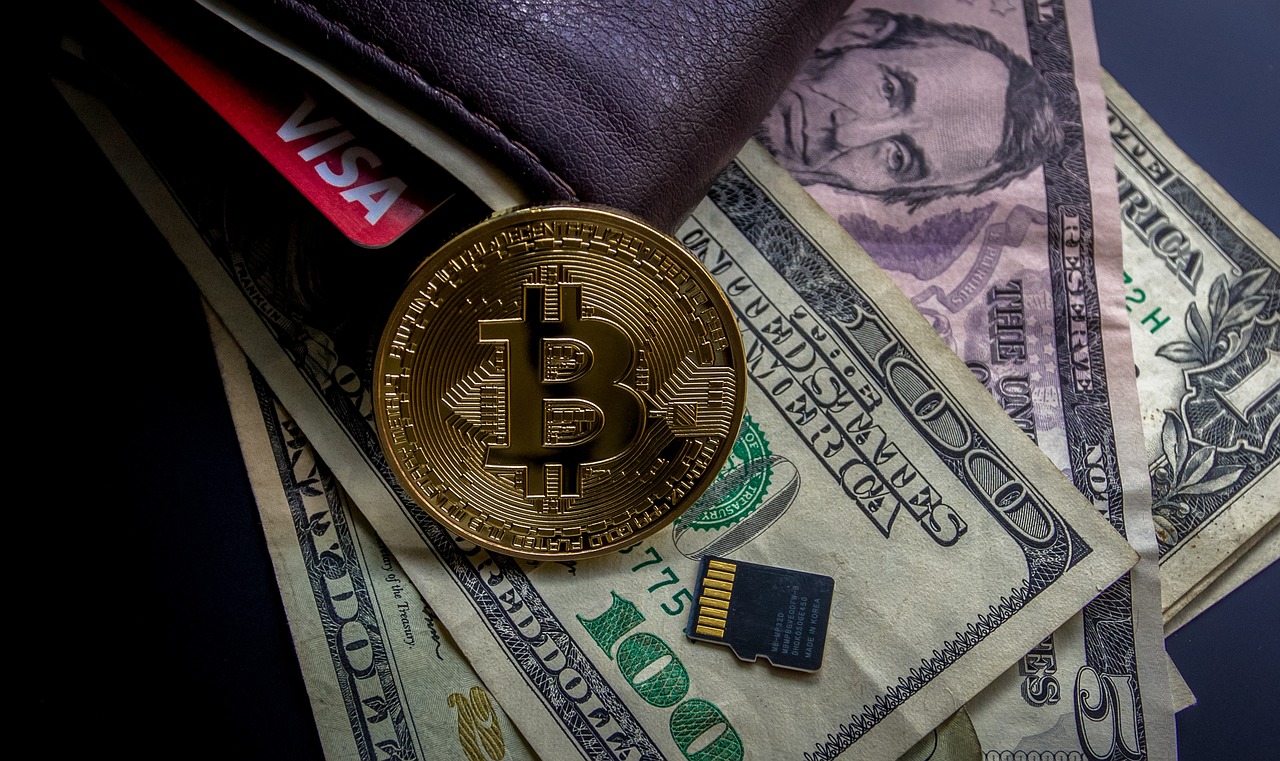
Dependence on Third-Party Security
When it comes to using exchange wallets for trading, one of the most significant concerns is the . Unlike personal wallets, which allow you to have full control over your private keys and funds, exchange wallets require you to trust the platform to keep your assets safe. This means that your digital wealth is only as secure as the measures put in place by the exchange. Imagine handing over your prized possessions to a stranger and hoping they keep them safe; that’s the reality of relying on third-party services.
Many exchanges implement robust security protocols, such as two-factor authentication (2FA), encryption, and cold storage for the majority of their funds. However, despite these measures, vulnerabilities still exist. Cyberattacks, hacking incidents, and even internal fraud can pose significant risks. For instance, several high-profile exchanges have suffered breaches in the past, leading to substantial losses for users. According to a report by the Chainalysis, over $1.9 billion worth of cryptocurrency was stolen from exchanges in 2020 alone. This raises an important question: how much trust are you willing to place in a third party?
Moreover, the complexity of security measures can often lead to user error. Many traders may not fully understand how to utilize security features effectively, leaving their accounts vulnerable. For example, while enabling 2FA is a critical step, users sometimes forget to update their recovery methods or use weak passwords, which can be easily compromised. It’s essential to be proactive in understanding the security landscape of your chosen exchange wallet.
To illustrate the potential risks associated with third-party security, consider the following table that outlines common vulnerabilities and their implications:
| Type of Vulnerability | Description | Potential Impact |
|---|---|---|
| Hacking | Unauthorized access to exchange systems | Loss of funds, damage to reputation |
| Phishing | Fraudulent attempts to obtain user credentials | Account takeover, financial loss |
| Insider Threats | Malicious actions by employees or contractors | Data breaches, theft of assets |
| Technical Failures | System outages or bugs affecting access | Inability to trade, potential losses |
In conclusion, while exchange wallets offer a convenient way to trade cryptocurrencies, the is a double-edged sword. Traders must weigh the convenience against the risks and take proactive steps to safeguard their assets. This includes choosing reputable exchanges, enabling all available security features, and staying informed about the latest security practices. Ultimately, your financial safety may depend on how well you navigate this complex landscape.
- What are exchange wallets?
Exchange wallets are online wallets provided by cryptocurrency exchanges to store, send, and receive digital assets. - Are exchange wallets safe?
While they can be secure, they are vulnerable to hacks and other security risks, making it crucial to choose reputable platforms and use security features. - How can I enhance the security of my exchange wallet?
Enable two-factor authentication, use strong passwords, and be cautious of phishing attempts. - What should I do if my exchange wallet is compromised?
Immediately contact the exchange for support, change your passwords, and monitor your accounts for suspicious activity.
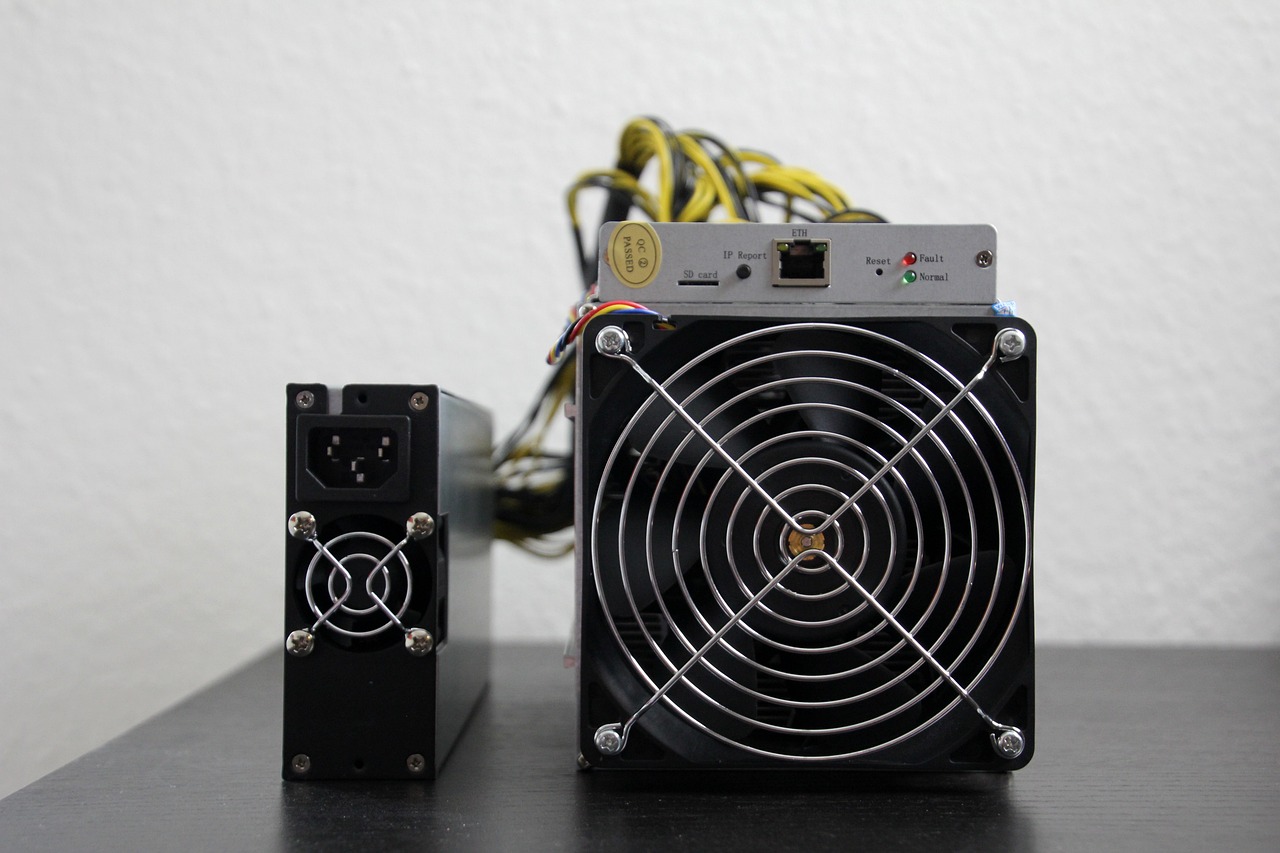
Accessibility and User Experience
When diving into the world of cryptocurrency trading, one of the most significant factors that can either make or break your experience is accessibility. Exchange wallets are designed with the user in mind, providing a seamless experience that caters to both newbies and seasoned traders alike. Imagine you’re at a bustling marketplace; the easier it is to navigate, the more likely you are to find what you’re looking for. This analogy perfectly encapsulates the role of accessibility in exchange wallets. With intuitive interfaces and straightforward navigation, these wallets allow users to manage their digital assets without the frustration that often accompanies complex systems.
For instance, many exchange wallets are accessible via various platforms, including desktop, mobile, and even tablets. This cross-platform compatibility ensures that you can trade on-the-go, whether you’re commuting to work or lounging at home. It’s like having a portable toolbox that contains everything you need, right at your fingertips. You’re not tied to a single device, which enhances your ability to respond quickly to market changes. Plus, the mobile applications often mirror the desktop experience, making it easy to switch between devices without losing track of your trades.
Another vital aspect of user experience is the customer support offered by these exchanges. Imagine being stuck in a maze with no one to guide you; it can be overwhelming, right? Reliable customer support acts as your guiding light, helping you navigate any issues that arise. Many exchanges provide 24/7 customer service through various channels, such as live chat, email, or even phone support. This level of accessibility ensures that you can get assistance when you need it most, making your trading experience smoother and less stressful.
Moreover, the overall design of exchange wallets focuses on user-friendliness. Most platforms come with tutorials or guides that help you understand the features and functionalities available. These resources are invaluable, especially for those just starting their trading journey. They demystify the process and empower users to make informed decisions, ultimately enhancing their trading confidence.
In summary, the accessibility and user experience provided by exchange wallets play a crucial role in the success of your trading endeavors. They ensure that you can effortlessly manage your assets, receive timely support, and navigate the complexities of cryptocurrency trading with ease. As you weigh the pros and cons of using exchange wallets, consider how these elements can significantly impact your overall trading strategy and success.
- What is an exchange wallet? An exchange wallet is a digital wallet provided by cryptocurrency exchanges where users can store, send, and receive cryptocurrencies.
- Are exchange wallets safe? While exchange wallets offer convenience, they are vulnerable to hacks. It’s essential to use strong security measures and consider additional security options like hardware wallets.
- Can I access my exchange wallet on multiple devices? Yes, most exchange wallets support cross-platform access, allowing you to trade on various devices seamlessly.
- What should I do if I encounter issues with my exchange wallet? Reach out to the customer support team of the exchange for assistance. Most exchanges provide multiple channels for support.
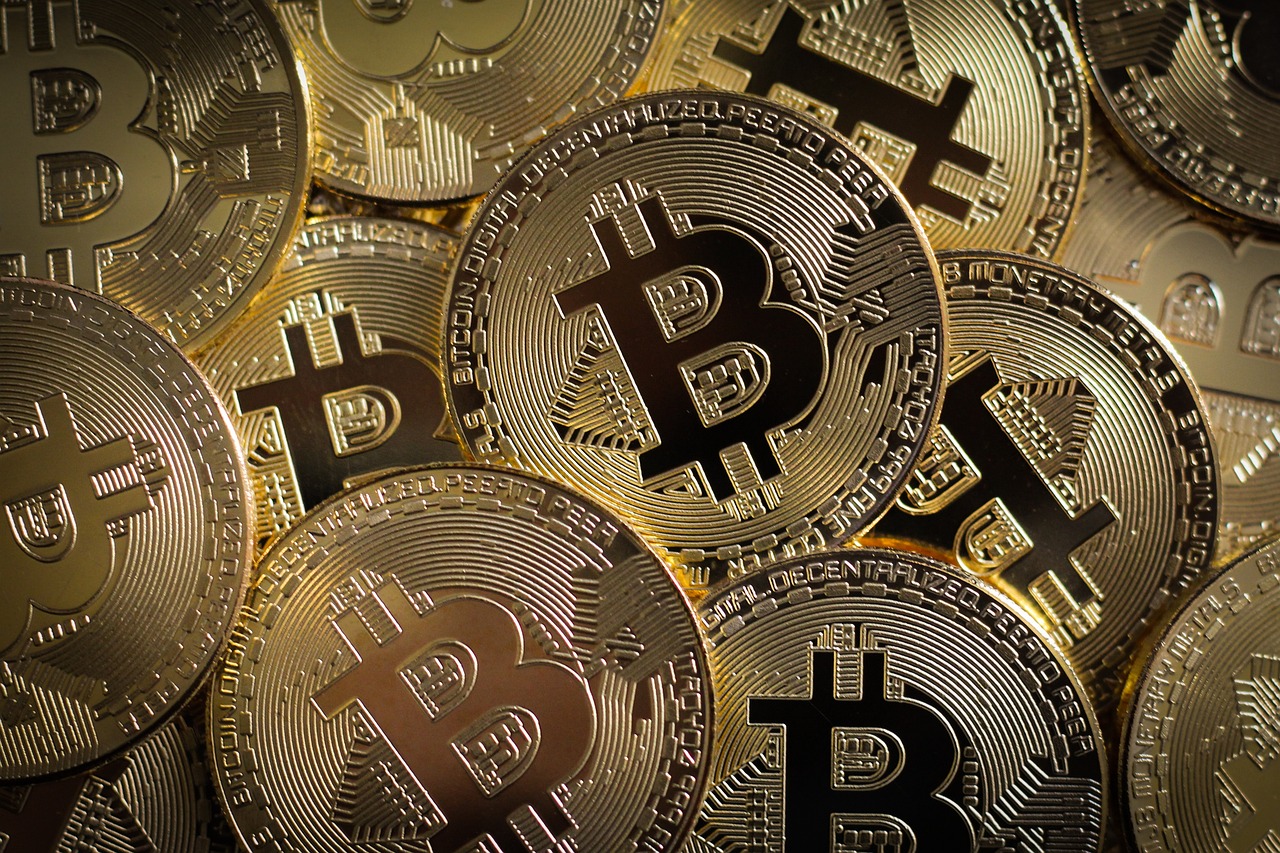
Cross-Platform Compatibility
In today's fast-paced digital world, is not just a luxury; it's a necessity. Imagine being able to access your cryptocurrency wallet from your laptop at home, your tablet on the go, or your smartphone while waiting in line for coffee. This flexibility is one of the hallmark features of exchange wallets, allowing traders to manage their assets seamlessly across various devices. It’s like having your favorite tool available wherever you are, ensuring that you can react to market changes in real-time.
Many exchange wallets are designed with responsive interfaces that adapt to different screen sizes and operating systems. This means whether you’re using iOS, Android, Windows, or macOS, you can enjoy a consistent user experience. The ability to switch between devices without losing functionality is a game-changer for traders who need to stay connected. For instance, you might start analyzing market trends on your desktop and later continue your trades on your mobile device without missing a beat.
Furthermore, the convenience of cross-platform compatibility is enhanced by cloud-based technology. Your wallet data is often stored securely in the cloud, which means you can access it from any device with an internet connection. This not only provides increased accessibility but also adds a layer of security, as your assets are not tied to a single device. In case your phone is lost or stolen, you can still retrieve your wallet from another device, provided you have the necessary credentials.
However, it's essential to recognize that with this convenience comes a need for vigilance. The more platforms you use, the more potential entry points there are for security breaches. Therefore, while enjoying the benefits of cross-platform compatibility, traders should also implement robust security measures such as two-factor authentication (2FA) and strong, unique passwords. This will help mitigate risks associated with accessing your wallet from multiple devices.
In summary, the cross-platform compatibility of exchange wallets empowers traders by providing unmatched accessibility and flexibility. It allows you to stay engaged with your trading activities regardless of where you are or what device you are using. Just like a well-oiled machine, this feature ensures that your trading experience remains smooth and efficient, enabling you to seize opportunities in the ever-evolving cryptocurrency market.
- What is cross-platform compatibility?
Cross-platform compatibility refers to the ability of software or applications to run on multiple operating systems and devices without losing functionality. - Why is cross-platform compatibility important for exchange wallets?
It allows traders to manage their assets conveniently from various devices, ensuring they can respond to market changes in real-time. - How can I ensure the security of my exchange wallet when using multiple devices?
Implementing strong passwords, using two-factor authentication, and regularly monitoring your account can help enhance security.

Customer Support Availability
When it comes to trading cryptocurrencies, having reliable customer support is not just a luxury—it's a necessity. Imagine you're in the middle of a crucial trade, and suddenly, you encounter an issue. You need answers fast, right? This is where the effectiveness and availability of customer support can make or break your trading experience. Many exchange wallets recognize this need and offer various support channels, including live chat, email, and even phone support. But how do you know if the support is truly effective?
Firstly, a good customer support system should be responsive. Traders often operate on tight schedules, and a delay in resolving issues can lead to missed opportunities. For instance, if you’re trying to withdraw funds and face a technical glitch, having a support team that responds within minutes can save you from significant losses. Additionally, the quality of the support matters just as much as the speed. It's essential that the representatives are knowledgeable and can provide solutions that are not only quick but also effective.
Moreover, the availability of support around the clock is another critical factor. Cryptocurrency markets never sleep, and neither should customer support. Many top-tier exchanges offer 24/7 support to ensure that traders can get assistance whenever they need it. This can be particularly beneficial for those who are new to trading and may have a lot of questions about the platform or the trading process.
To help you gauge the customer support of various exchanges, here’s a quick comparison table of some popular exchanges and their support features:
| Exchange | Support Channels | Response Time | 24/7 Availability |
|---|---|---|---|
| Exchange A | Live Chat, Email, Phone | Within 5 Minutes | Yes |
| Exchange B | Email, Live Chat | Within 1 Hour | No |
| Exchange C | Live Chat, Email | Within 10 Minutes | Yes |
As you can see, not all exchanges offer the same level of support. It's crucial to do your homework and choose an exchange that prioritizes customer service. After all, when your hard-earned money is at stake, you want to ensure that help is just a click away. The peace of mind that comes from knowing you can get assistance at any time can significantly enhance your trading experience.
In conclusion, the availability of customer support plays a vital role in the overall effectiveness of exchange wallets. Whether you are a novice trader or a seasoned pro, having access to knowledgeable and responsive support can empower you to make better trading decisions and navigate the sometimes turbulent waters of cryptocurrency trading with confidence.
- What should I look for in customer support? Look for responsiveness, availability, and knowledgeable representatives.
- Is 24/7 support necessary? Yes, especially for traders who operate in different time zones or during market fluctuations.
- How can I test an exchange's customer support? Try reaching out with a simple query to see how quickly and effectively they respond.
Frequently Asked Questions
- What are exchange wallets?
Exchange wallets are digital wallets provided by cryptocurrency exchanges to store, send, and receive cryptocurrencies. They allow users to trade directly on the exchange platform, making transactions quick and efficient.
- Are exchange wallets safe for storing my cryptocurrencies?
While exchange wallets offer convenience, they are not the safest option for long-term storage. They are susceptible to hacks and security breaches, as they rely on third-party security measures. For enhanced safety, consider using hardware wallets for long-term storage.
- How do I access my exchange wallet?
You can access your exchange wallet by logging into your account on the cryptocurrency exchange's website or mobile app. Make sure to use secure passwords and enable two-factor authentication to protect your account.
- What are the transaction fees associated with exchange wallets?
Transaction fees vary by exchange and can be influenced by factors such as the type of transaction and network congestion. Generally, exchange wallets offer competitive fees, but it's essential to check the specific fee structure of your chosen exchange.
- Can I use exchange wallets on multiple devices?
Yes! Most exchange wallets are designed to be cross-platform compatible, allowing you to access your wallet from various devices, including desktops, laptops, and smartphones. This flexibility makes it easy to trade on the go.
- What should I do if I encounter issues with my exchange wallet?
If you experience any issues, it's crucial to reach out to the exchange's customer support. Reliable customer support can help you resolve problems quickly, ensuring a smooth trading experience.
- Are there any advantages to using exchange wallets for trading?
Absolutely! Exchange wallets offer several advantages, including instant transactions, integrated trading features, and user-friendly interfaces. These benefits can enhance your trading efficiency and overall experience.
- How do I transfer my cryptocurrencies from an exchange wallet to a hardware wallet?
To transfer cryptocurrencies, you need to initiate a withdrawal from your exchange wallet. Enter your hardware wallet's address and specify the amount you wish to transfer. Always double-check the address to avoid any mistakes!
















